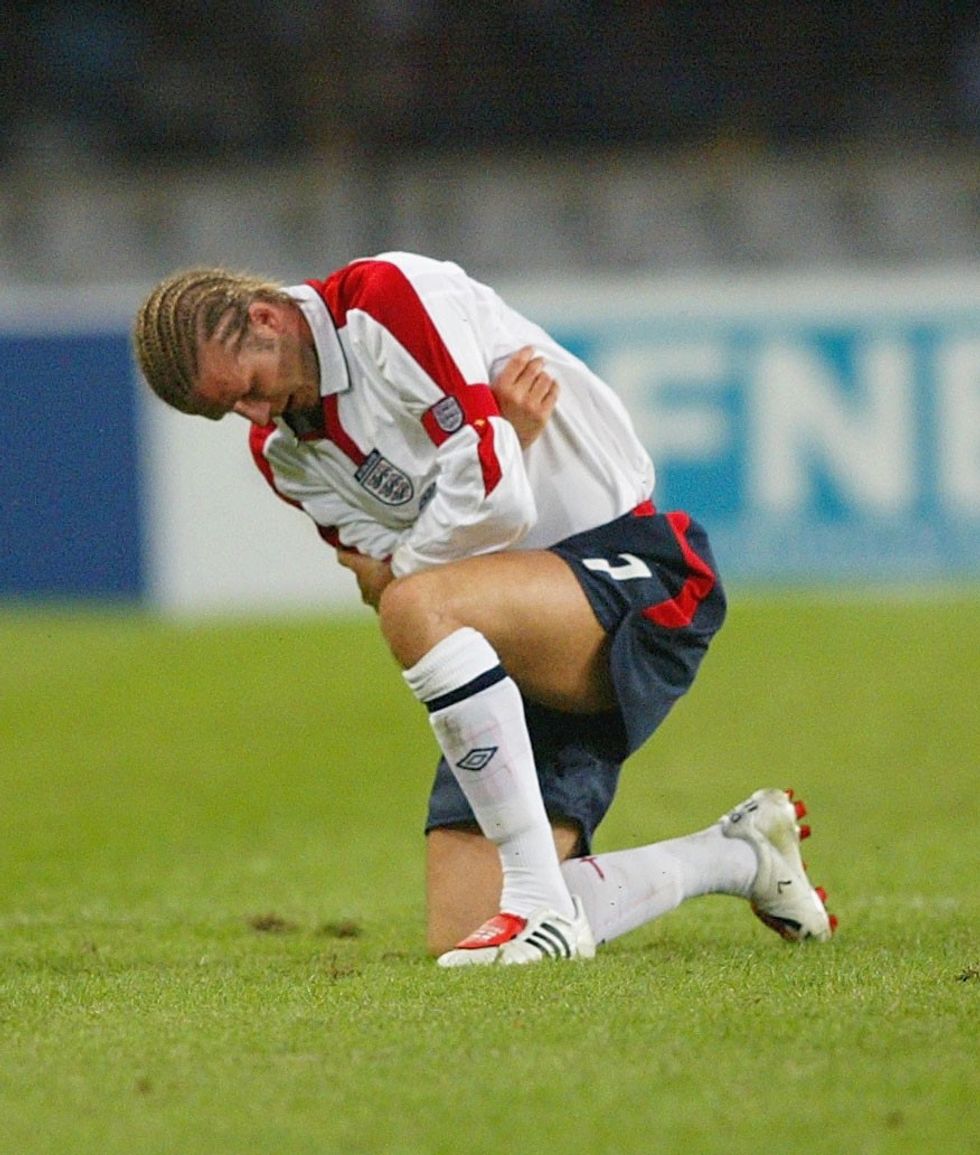FROM a historic postponement to sexism scandals and unprecedented restrictions on fans, the path to staging the Tokyo Olympics has been far from smooth.
As the Games begin on July 23, here is a timeline to Tokyo's journey to finally staging the Olympics.
2013: Tears and cheers
News presenters shed tears and crowds erupt in delight as the International Olympic Committee names Tokyo host of the 2020 Games.
Thoughts turn to the victims of Japan's devastating 2011 earthquake, tsunami and Fukushima nuclear disaster, with the Olympics seen as a chance to rebuild.
2015-16: Stadium and logo ditched
Proposals for a new national stadium designed by Zaha Hadid go back to the drawing board in July 2015 following public anger over the price tag.
The original Olympic logo design is also ditched over its resemblance to the emblem of a Belgian theatre, with a new "snake-eye" logo unveiled in April 2016.
2019: Payments probe, marathon switch
French magistrates charge the head of Japan's Olympic committee as they probe payments totalling $2.3 million made before and after Tokyo's nomination.
Tsunekazu Takeda protests his innocence but later steps down from the role.
In October, the IOC shifts the Olympic marathon to northern Sapporo to avoid the capital's sweltering summer heat - a surprise move that infuriates Tokyo officials.
March 24, 2020: Historic postponement
With the coronavirus spreading rapidly worldwide, Japan and the IOC take the decision to postpone the Olympics for the first time in history.
A new date is announced for the opening ceremony - July 23, 2021 - but the event will still be called Tokyo 2020.
December 2020: Anti-virus rules
Vowing that the rescheduled Olympics will go ahead, organisers outline plans for holding the event safely.
Athletes will face regular testing and restrictions on mingling and the IOC says it will try to ensure as many participants as possible are vaccinated, but jabs will not be obligatory.
January 2021: Virus surges
Public support for the Olympics plunges in Japan as a virus state of emergency is declared in Tokyo and other regions to halt a winter spike in infections.
But organisers and the IOC insist the Games will be held, with prime minister Yoshihide Suga saying they will be "proof of mankind's victory over the virus".
February 2021: Sexism rows
Tokyo 2020 chief Yoshiro Mori resigns after his claims that women talk too much in meetings spark a firestorm of criticism.
He is replaced by Olympic minister Seiko Hashimoto, a seven-time Olympian who is one of just two women in Japan's cabinet.
Just weeks into her tenure, she accepts the resignation of the creative director for the Games' opening and closing ceremonies after a report reveals he suggested a plus-size female comedian could appear as an "Olympig".
March 2021: No overseas fans
In an Olympic first, overseas fans are barred from the Games to limit infection risks.
On March 25, the cherry blossom-shaped Olympic torch is lit in Fukushima, with no spectators allowed at the launch.
As the flame traverses the country's 47 prefectures, several public sections of the relay are scrapped in areas where virus cases are spiking, including the final leg in Tokyo.
And in April, North Korea says it will not attend the Tokyo Games to protect its athletes from Covid-19, dashing Seoul's hopes of using the Games to restart talks with its nuclear-armed neighbour.
June 2021: First athletes arrive
Through spring and into summer, debate rages about whether the Olympics should be held as planned, as the pandemic continues to wreak havoc and new variants emerge.
But several competition rehearsals are held successfully, and in a major step forward for the troubled event, on June 1, the first foreign athletes arrive in Japan - Australia's softball team, who are attending a pre-Games training camp.
Polls show public opinion, which has been firmly opposed to the Games for months, may be beginning to soften.
July 2021: Tokyo fans barred
Spectators are banned from Olympic venues in Tokyo and three surrounding regions because of a virus state of emergency imposed in the capital as cases rebound, including the more infectious Delta strain.
The decision, described by Tokyo Governor Yuriko Koike as "heartbreaking", means the Games will happen mostly behind closed doors, with the public also urged to stay away from the marathon in Sapporo.
The Olympic flame arrives in Tokyo at a low-key welcoming ceremony held without fans, giving a taste of what could be expected at the July 23 opening ceremony.
July 2021: Opening ceremony director fired
Tokyo 2020 organisers fired the show director for the Olympic opening ceremony on the eve of the event over a decades-old skit referencing the Holocaust.
But the decision will not affect the details of the ceremony, organisers said. Kentaro Kobayashi's comments in a video of a comedy sketch from 1998 emerged online overnight and sparked shock from some in Japan.
Kobayashi, a well known figure in theatre in Japan, became the latest member of the opening ceremony team to depart in disgrace.
(AFP)
















 Victoria Beckham's story Instagram screengrab/
Victoria Beckham's story Instagram screengrab/ Victoria Beckham's story Instagram screengrab/
Victoria Beckham's story Instagram screengrab/ David Beckham of England feels the pain in his arm after being tackled and upended by Thabang Molefe of South AfricaGetty Images
David Beckham of England feels the pain in his arm after being tackled and upended by Thabang Molefe of South AfricaGetty Images 
